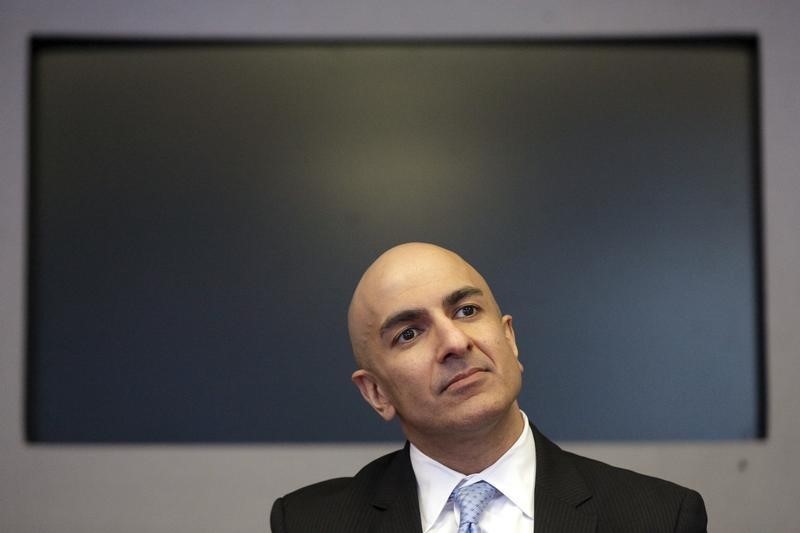(Bloomberg) -- Federal Reserve Bank of Minneapolis President Neel Kashkari said recession risks have risen “quite a bit” and the central bank should be ready to cut interest rates again to protect the U.S. economy.
“It is better to be early and aggressive if you see a slowdown than wait until you’re sure the economy is in recession,” he told CNN in an interview on Thursday. “We don’t know yet, are we headed for a recession. That’s not my base-case scenario. But the risks have increased quite a bit.”
Kashkari, who does not vote on interest rates this year, is one of the Fed’s most dovish policy makers who advocated for a half percentage point cut at the central bank’s meeting in June. It held rates steady then but lowered them on July 31 for the first time in more than a decade. It also signaled that it was ready to do more as insurance against a slowdown in global growth stemming from the U.S.-China trade war.
Kashkari said recent economic data had been mixed, citing positive news from the U.S. consumer versus discouraging reports from businesses worried about the trade war. He also pointed to warning signs from the bond market -- where a key segment of the yield curve inverted on Wednesday for the first time since the financial crisis -- as a red flag that Fed rates were still too high.
“We probably need to go ahead to pull back on interest rates to provide more support to the economy,” Kashkari said. “But we need to continue to watch the data as it comes in over the next month before our next meeting.” The Federal Open Market Committee will gather Sept. 17-18 in Washington.
He also rejected criticism by the president and his aides of Fed Chairman Jerome Powell, whom Trump picked for the job but has since criticized aggressively for raising rates and failing to support his trade policies against China.
“Jerome Powell is an outstanding Federal Reserve chairman and an A-plus public servant and I think we’re all lucky to have him and I completely support him,” Kashkari said. “Very few businesses that I talk to are pointing to the Federal Reserve and saying ‘hey, it’s your interest rate policy that’s slowing things down.’ Much more likely it’s focused on trade policy and global uncertainty,” he said.
